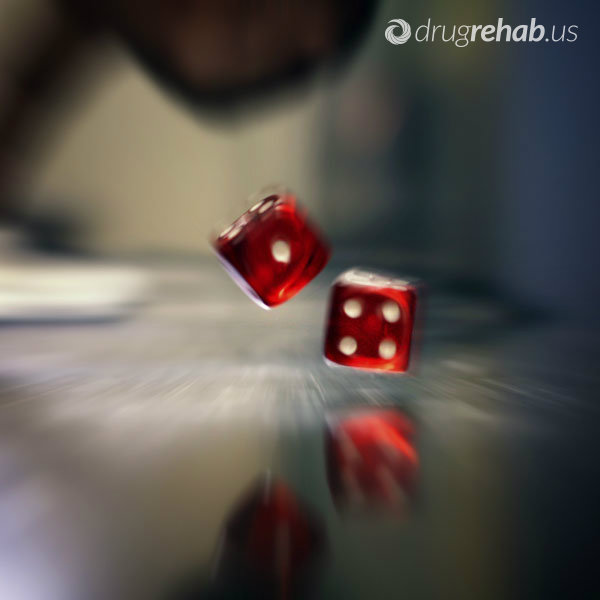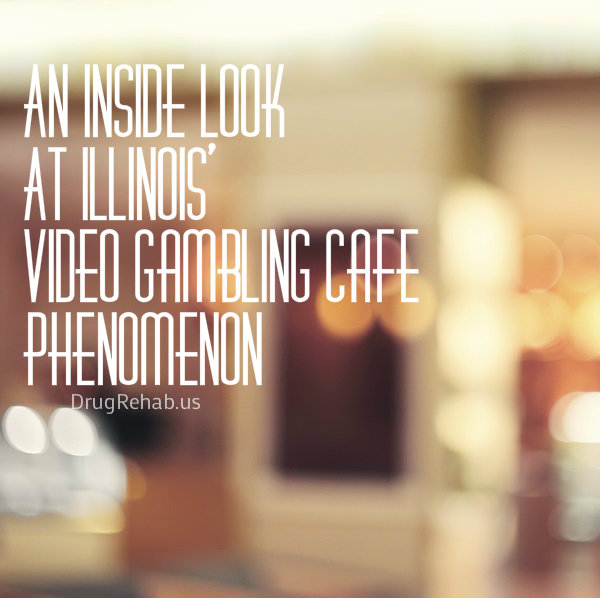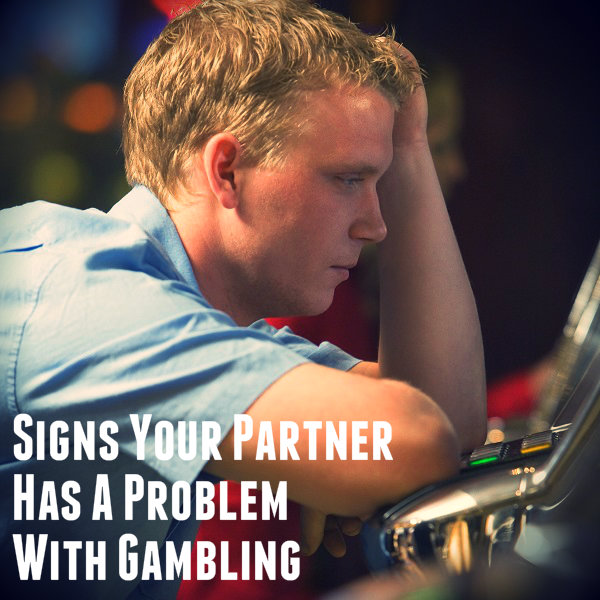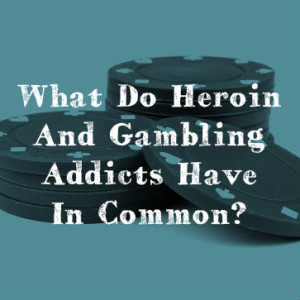Prior to 2013, doctors in the U.S. diagnosed serious gambling problems under the heading of a condition called pathological gambling. However, in May of that year, the American Psychiatric Association eliminated the pathological gambling diagnosis and replaced it with a new, modified diagnosis called gambling disorder.
In a study published in 2014 in the journal Psychology of Addictive Behaviors, a team of American researchers compared the accuracy of the definition for pathological gambling to the accuracy of the definition for gambling disorder. These researchers concluded that the definition for the newer diagnosis has retained a high degree of accuracy in properly identifying affected individuals.
Pathological Gambling
The American Psychiatric Association (APA) included pathological gambling with a larger group of conditions called “impulse control disorders not elsewhere classified.” Other illnesses found in this category included pyromania, an anger control-related condition called intermittent explosive disorder, and kleptomania.
Pathological Gambling Symptoms
Doctors diagnosing pathological gambling looked for the presence of a minimum of five out of 10 potential symptoms. These symptoms included:
 fixation with gambling while not actively involved in gambling,
fixation with gambling while not actively involved in gambling,- demonstrated inability to place limits on gambling participation,
- compulsion to engage in increasingly risky gambling situations, a
- reliance on gambling to cope with or avoid painful emotions or personal problems,
- returning to gambling rapidly after incurring substantial losses,
- concealing the extent of gambling involvement from others,
- relying on other people’s resources for gambling participation,
- gambling-related exposure to serious harm in personal or social relationships, and
- the onset of mental/psychological withdrawal when gambling participation stops or declines
The pathological gambling definition also included funding of gambling through illegal means as a potential symptom.
Gambling Disorder
In 2013, the APA simultaneously eliminated the pathological gambling diagnosis and placed the gambling disorder diagnosis in a new category of conditions called addictive disorders. These disorders are behavioral addictions that stem from problematic involvement in certain pleasurable, everyday activities rather than from the repeated, excessive use of drugs or alcohol. Gambling disorder is the only illness the APA has added to the addictive disorders category.
The definition for this condition largely resembles the previously used definition for pathological gambling. However, the American Psychiatric Association eliminated funding gambling through illegal means from the list of symptoms. In addition, the organization reduced the lower limit for diagnosing gambling disorder to four out of 10 symptoms, compared to the five out 11 symptoms limit used for diagnosing pathological gambling.
Has The Change Affected Accuracy?
In the study published in Psychology of Addictive Behaviors, researchers from the New York State Psychiatric Institute, the National Institutes of Health, and the University of Connecticut used information from a large-scale federal project called the National Epidemiologic Survey of Alcohol and Related Disorders (NESARC) to compare the accuracy of the symptom set used to define pathological gambling to the accuracy of the symptom set used to define gambling disorder. A total of 43,093 people were involved in this comparison. These individuals came from demographic backgrounds reflective of the national population. The researchers analyzed the gambling problems in this group as a whole and in each major demographic subgroup.
After completing their analysis, the researchers concluded that the new gambling disorder definition correctly identifies serious gambling problems in roughly 99 percent of those individuals who would have been diagnosed under the old pathological gambling definition. They also concluded that both definitions do an equally good job of identifying people not affected by serious gambling problems. These findings applied to the NESARC participants as a whole, as well as to all of the demographic subgroups found among the NESARC participants.
The study’s authors concluded that the switch from pathological gambling to gambling disorder and the associated elimination of funding gambling through illegal means as a potential symptom have had a minimal effect on doctors’ ability to accurately diagnose dysfunctional gambling behaviors. However, they also concluded that the lowered symptom requirement for gambling disorder will lead to an uptick in the number of people who receive a diagnosis. Still, despite this uptick, the overall number of people affected by diagnosable gambling problems will continue to be fairly small relative to the total population.
Since video gambling in Illinois became legal, the state’s neighborhoods, retail districts and shopping malls have been invaded by a new type of gambling establishment—the video gambling café. Unlike bars and restaurants that provide a few video slot machines for their customers’ convenience or to supplement the main business, video gambling cafés are a stripped down no-frills version of the casino that exist solely to make money off of people’s passion for electronic games of chance.
When politicians in Illinois got the idea to legalize video gambling machines, their primary purpose was to give a boost to neighborhood taverns and local restaurants struggling under the weight of the economic downturn. Of course they were also looking for new revenue streams, and they knew expanded gambling would swell the state’s tax coffers more prodigiously than spring melting floods the Mississippi River.
 Illinois’ Video Gaming Act of 2009 authorized the placement of up to five video slot machines or gaming terminals in truck stops, veteran facilities, fraternal establishments and retail outlets licensed to serve alcoholic beverages for immediate consumption. It took a while for the new law to be put into application (three years, to be precise), but when video gambling finally came online, a new type of gambling operation barged onto the scene and threw its chips into the pot.
Illinois’ Video Gaming Act of 2009 authorized the placement of up to five video slot machines or gaming terminals in truck stops, veteran facilities, fraternal establishments and retail outlets licensed to serve alcoholic beverages for immediate consumption. It took a while for the new law to be put into application (three years, to be precise), but when video gambling finally came online, a new type of gambling operation barged onto the scene and threw its chips into the pot.
Originating from mysterious locations far outside the Illinois border, these gambling entrepreneurs applied for liquor licenses in Illinois municipalities eager for business expansion. After their requests were granted—as they almost always were—the video gambling café phenomenon truly took off.
Video Gambling Cafés Surging
The numbers are changing every day, but according to one recent report, there are more than 1,250 video gaming machines ensconced in 280 cafés across the Prairie State. And that estimate doesn’t include the applications for café licenses that are pending in the 40-plus Illinois counties that have granted café operators permission to set up shop.
To meet the requirements of the law, video cafés must serve food. But their offerings are sparse in comparison to bars (with strict drink limitations often enforced), and the vast majority of their income is gained from the operation of their video slot machines.
Video Gambling Cafés’ More “Wholesome” Impression
The cafés advertise themselves as a “wholesome” alternative to bars, featuring a pure, unadorned gambling experience appropriate for all men and women of legal age.
To present a benign image, most of the cafes have chosen names like “Dottie’s,” “Penny’s,” “Stella’s,” “Annie’s” or “Emma’s,” perhaps intending to give the impression that café owners are sentimental sweethearts who chose to name their businesses after their moms.
Not as glitzy and glamorous as the typical Las Vegas gambling venue (and not nearly as big), most video gambling cafés have been humbly plopped down in shopping malls or alongside other small locally owned neighborhood businesses.
Simple frontage and unassuming décor complement this modest comportment, helping portray the video gambling café as a quieter, more casual and more affordable option for those repelled by the money-grubbing flashiness of the traditional casino.
Video Gambling Cafés’ Huge State Profits
So far, the understated stylistic choices of the video gambling cafés have proven to be a fabulous success. These establishments are already grossing in excess of $100 million annually, and are responsible for about 7 percent of the state’s legal gambling profits.
Since these businesses are taxed, they are helping to fill depleted government treasuries. But they are stealing customers away from the bars, clubs and restaurants that were the intended target of the original legislation and helping spread gambling farther and faster than was ever anticipated.
Most of the cafés are owned by out-of-state interests that divert profits to far-off locations, infuriating community and political leaders and creating a sense of urgency among those who want to rein in these slick operators.
And while no studies have yet been performed to see what effects their presence might be having on pathological gamblers, having so much temptation so close at hand (most of these cafés are adjacent to or actually in residential neighborhoods) must be undermining the attempts of many to overcome their addictions.
Lake County Reaction
In Lake County, just north of Chicago, new rules have been passed requiring liquor license holders with video slot machines to gross at least 60 percent of their revenue from food and drink sales. Additionally, these businesses may not dedicate more than 10 percent of their floor space to video gambling.
These restrictions will inevitably mean the end for prospective video gambling entrepreneurs looking to set up shop in Lake County, since their cafés could not possibly hope to meet these exacting and clearly discriminatory standards.
It remains to be seen if other Illinois counties will follow the example set by Lake County. But it seems highly probable, especially in areas where public opinion isn’t so keen on endlessly-expanded gambling. But as long as these cafes have a significant customer base, they will likely remain a fixture on the Illinois gambling scene, even if their numbers are restricted in the future.
Is Your Partner A Compulsive Gambler? – Learn The Early Warning Signs Now
19 Jan 2015
Is Your Partner A Compulsive Gambler?
Gambling can be a fun, and sometimes profitable pastime, but it is an activity that can easily spin out of control. It goes by many names: compulsive gambling, problem gambling and pathological gambling. Whatever you call it, gambling addiction is a serious problem that can lead to severe negative consequences.
Signs And Symptoms That Your Partner Is A Compulsive Gambler
If you suspect that your boyfriend or husband has a problem with gambling, you should learn to recognize the signs of an addiction and sit him down for an important conversation about slowing down or getting help.
Early Signs Of Problem Gambling
No addiction starts out at full speed. If your partner has a problem with gambling it probably started out innocently enough. Maybe he had a big win at a casino trip and wanted to keep trying to win again. Maybe he started playing online poker after work to unwind and now can’t stop.
 If he is in the early stages of compulsive gambling, you have a good chance of convincing him to make some changes. Early signs and symptoms of gambling include:
If he is in the early stages of compulsive gambling, you have a good chance of convincing him to make some changes. Early signs and symptoms of gambling include:
- A preoccupation with gambling.
- Lying about time spent gambling or amounts of money lost.
- Gambling to soothe negative emotions such as stress, depression or anxiety.
- Cutting out other interests and hobbies in favor of gambling.
- Gambling in spite of negative consequences, such as big losses or arguments about time spent gambling.
- Trying to cut back on gambling time, without much success.
Symptoms Of A Gambling Addiction
The early signs of a gambling problem may be hard to recognize or pin down. They may be mild enough that you and your partner are able to deny that there is an issue. If you don’t confront the problem you could be facing a worsening obsession with gambling and even an addiction or a case of pathological gambling. Here are some signs that your partner has a serious problem with gambling and needs help:
- He feels restless, irritable and anxious when he can’t get to the casino or to an online gambling site. These are symptoms of withdrawal and a sign of a behavioral addiction.
- He has developed a tolerance. This means that his usual time spent gambling doesn’t feel like enough anymore. He needs to spend more and more time gambling to feel good.
- He is experiencing serious financial setbacks because of gambling and yet continues to do it. A hallmark of any addiction is continuing in the face of serious negative consequences. For gamblers, this usually means losing a lot of money. He may even lose his job because of missed time or gambling online while at work.
- He takes extreme measures in order to gamble more. This may mean stealing to fund his habit or taking out big, risky loans.
- He experiences manic episodes when winning and severe depression when losing. His emotions are deeply tied to his gambling.
What To Do If You Believe Your Partner Has A Problem With Gambling
Compulsive gambling is a serious problem and is one that can tear relationships apart. If your partner is exhibiting any of the signs of having this problem, it’s time for an important discussion.
Approach your partner with concern and compassion and suggest that he may have a problem. Explain how his gambling is impacting your life and your relationship and offer to help him quit or cut back. If he refuses help or is in denial, don’t give up. Ask other family members or friends to confront him as well and be prepared with options for getting professional help.
Take steps now, before it is too late and your relationship is completely destroyed by gambling addiction.
Do Heroin And Gambling Addicts Share Similar Brain Changes? – Find Out Now
Do You Or A Loved One Need Help With A Substance Or Behavioral Addiction?
Call Us Now To Take The First Step Toward A New Life…You Are Worth It!
Substance addiction, which stems from the improper use of drugs or alcohol, is the classic model of physical addiction. It contrasts with behavioral addiction, a newly acknowledged form of addiction not centered on substance use. In a study published in January 2014 in the journal Drug and Alcohol Dependence, researchers from the U.S. and China compared the brain effects of one particular form of substance addiction—heroin addiction—to the brain effects of gambling disorder, the only officially recognized form of behavioral addiction in the U.S. These researchers concluded that the two conditions produce differing but overlapping brain changes.
Substance Use Disorders
Substance addiction is one of the two major components of an officially diagnosable condition called substance use disorder (which also includes serious, non-addicted substance abuse). People affected by this form of addiction experience long-term changes in their brains’ chemical status brought about by the repeated use of excessive amounts of alcohol or any one of a range of drugs or medications.
These changes occur because the brain receives enough exposure to alcohol, drugs or addictive medications to begin treating this exposure as the norm rather than the exception.
Symptoms Of Substance Addiction
 Strong and recurring urge to drink or use drugs
Strong and recurring urge to drink or use drugs- Corresponding inability to voluntarily limit substance intake
- Increasing tolerance to the effects of drugs or alcoho
- Withdrawal symptoms when the “normal” amount of alcohol or drugs is unavailable
- Destructive pattern of behavior focused primarily on substance use
Similarities Between Substance Addiction And Behavioral Addiction
Behavioral addiction produces a series of changes that mirror many key aspects of substance addiction. However, instead of stemming from excessive drug or alcohol intake, this form of addiction stems from excessive reliance on (or participation in) a specific activity.
- Strong and recurring urge to participate in a given behavior
- Inability to voluntarily limit that behavior
- Establishment of a destructive pattern of conduct focused on the behavior in question
Like substance addiction, behavioral addiction also creates long-term changes in the way the brain does its job. The American Psychiatric Association includes both substance addiction and behavioral addiction in a large grouping of conditions known collectively as substance-related and addictive disorders. There are a number of officially recognized substance-related disorders; however, as of 2014, gambling disorder (problem gambling, compulsive gambling, pathological gambling) is the only recognized form of addictive disorder.
Comparing The Brain Effects On Heroin Addiction Vs. Gambling Disorders
In the study published in Drug and Alcohol Dependence, researchers from the University of Southern California, the Chinese Academy of Sciences and China’s Guiyang Medical University conducted testing designed to compare the brain impairment of heroin addiction to the brain impairment of gambling disorder (identified in the study as pathological gambling).
Participants in this testing included 58 heroin addicts maintaining abstinence from drug use, 60 people diagnosed with gambling disorder and 60 generally healthy people unaffected by either heroin addiction or gambling disorder. Each of these participants took part in a test that assesses a critical form of short-term memory called working memory, as well as a separate test that assesses the ability to make decisions and control impulsive behaviors. The researchers compared the testing results of both the heroin addicts and the compulsive gamblers to the testing results of the healthy study participants.
They concluded that, compared to healthy people, heroin addicts experience a significant decline in their ability to use working memory, make decisions and control their actions. People affected by gambling disorder also experience problems making decisions and controlling their behaviors; however, they do not experience problems with their working memory. In addition, the researchers found that the brain impairments associated with heroin addiction grow worse over time. In contrast, the brain impairments associated with gambling disorder do not appear to grow worse or have a greater impact on people heavily addicted to gambling.
Behavioral Actions And Memory Problem Differences In Addiction
Based on their findings, the authors of the study published in Drug and Alcohol Dependence concluded that decision-making and impulse control problems appear to be central features of addiction, whether that addiction stems from a substance or a behavior. Memory problems, on the other hand, appear to be specific to substance addiction (or, at the least, heroin addiction). Further research will be needed to determine if other forms of behavioral addiction not officially recognized in the U.S. (such as sex addiction and Internet addiction) produce the same changes in brain function as gambling disorder.
Read More About The Importance Of Identifying Signs Of Substance Abuse In Bipolar Patients


